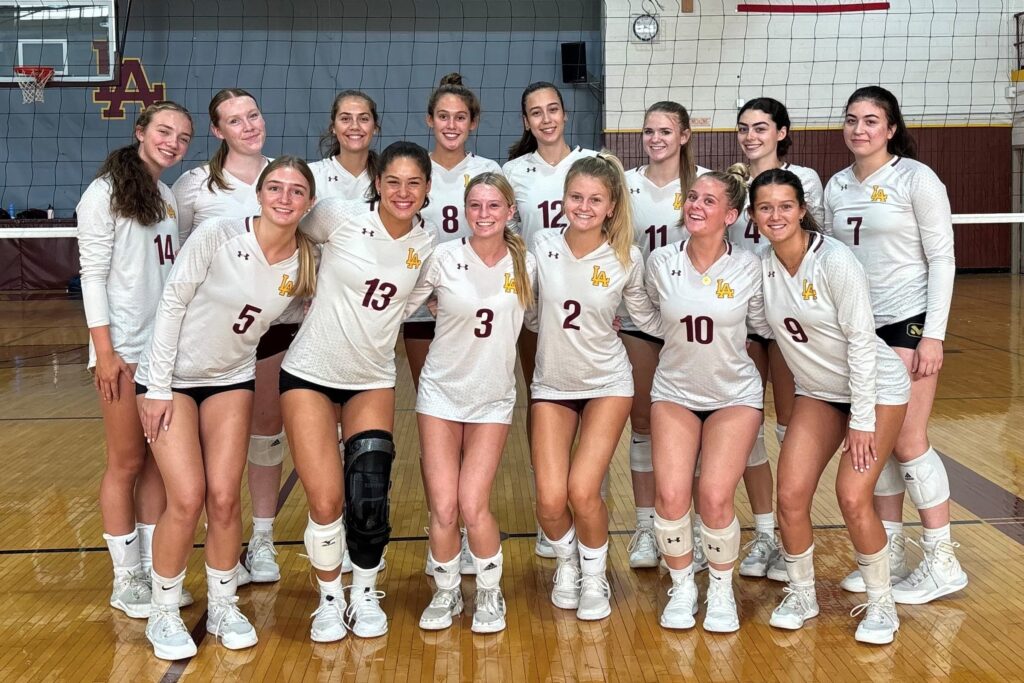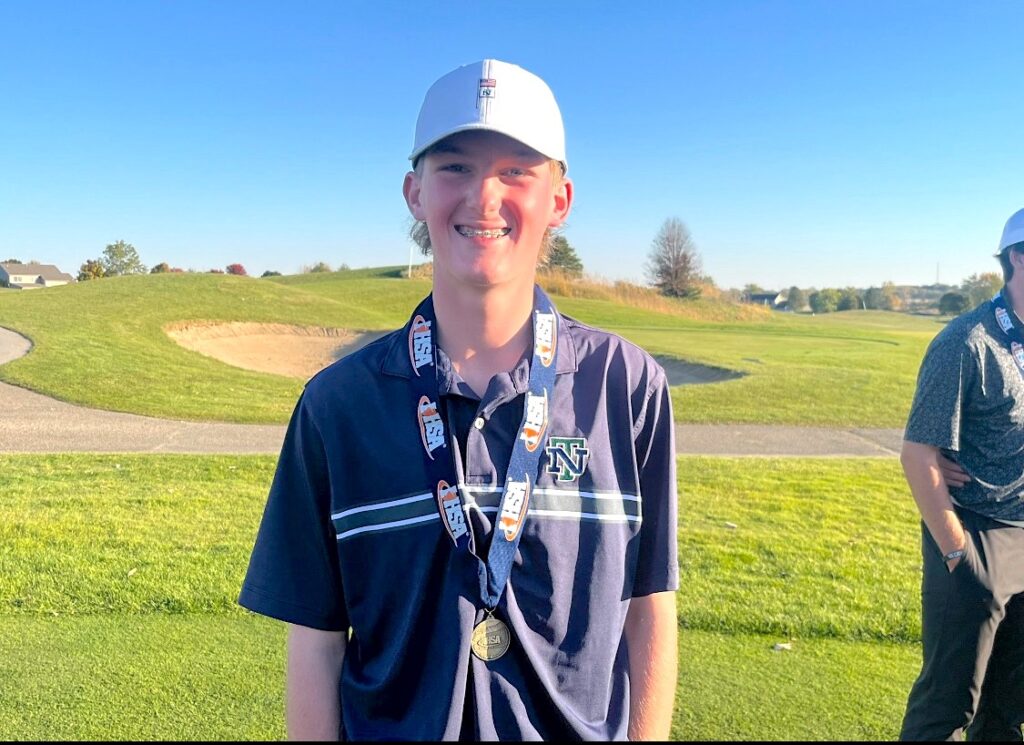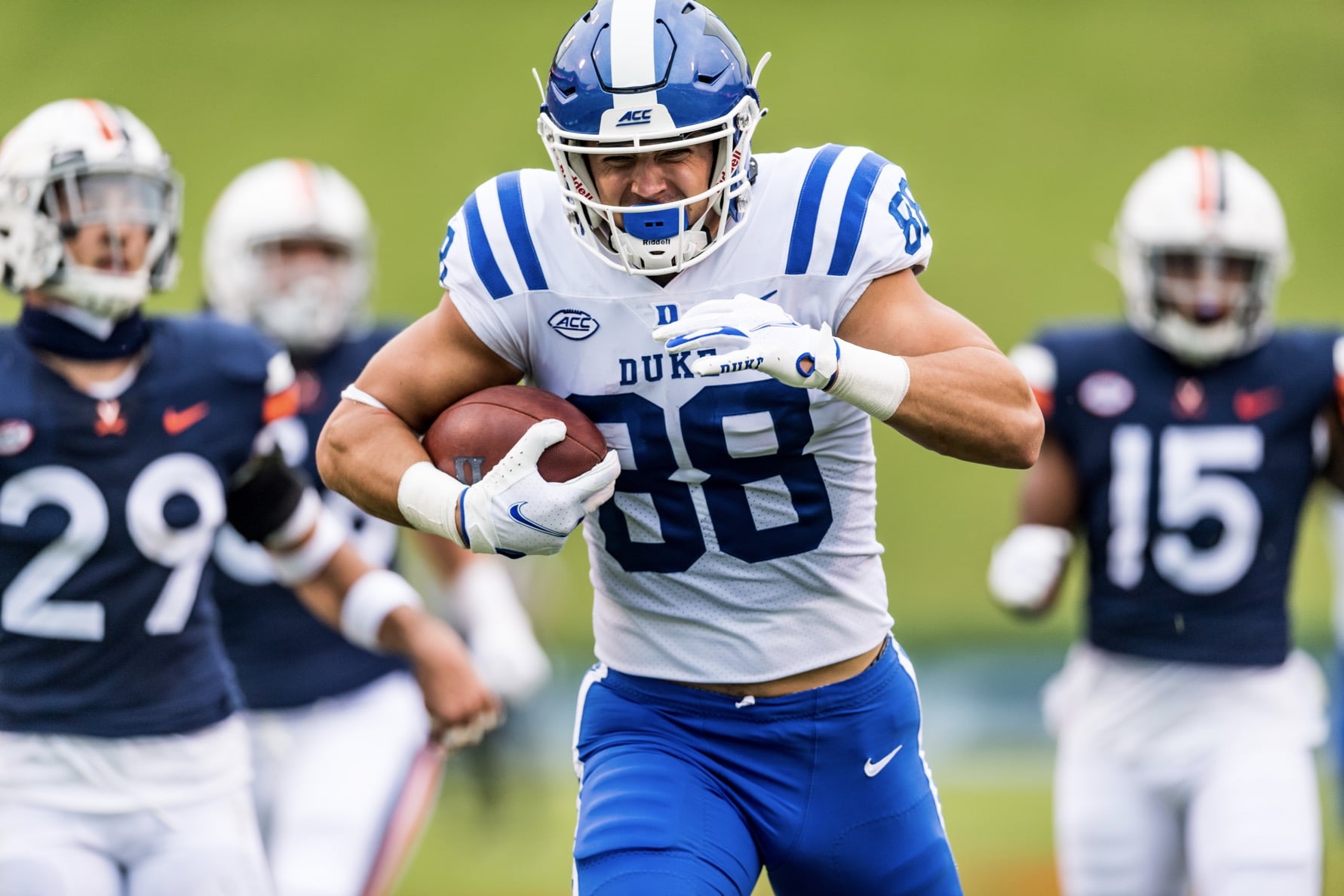
‘It’s been a wild ride for sure’: Former New Trier, Loyola football players reflect on unprecedented collegiate season
Duke Olges had a weird feeling at the beginning of August.
Amid the COVID-19 pandemic, the Northwestern University redshirt freshman was not sure what would happen once he and his teammates started fall camp — some thought the season would be canceled while others believed it would take place as expected.
Olges, a New Trier High School alumnus, had a season to prepare for when the Big Ten announced its revised schedule on Aug. 5. Then he didn’t, when the conference postponed play indefinitely six days later.
Some conferences, like the SEC and Big 12, decided to play on; others, like the PAC-12, postponed their seasons, only to return later in the fall after further medical evaluations and a push from players, parents and boosters.
That uncertainty was only the start of what would be a college football season unlike any that came before it and quite possibly unlike any that will come after. A season defined by strict protocols, regular adjustments and for many, constant loneliness.
All to play the sport that they love.
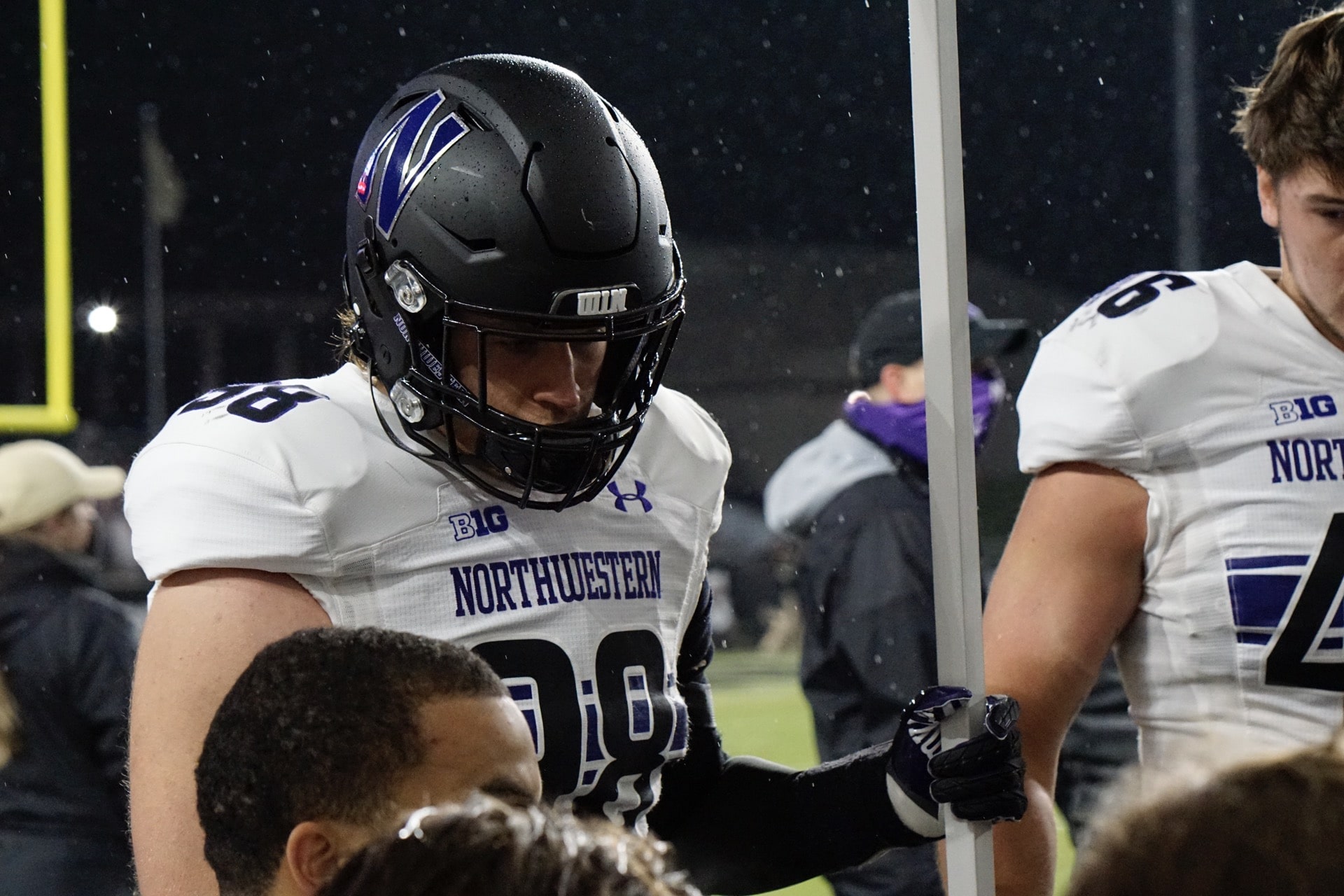
“It’s been a wild ride for sure,” Olges said. “I think the biggest part of the season that’s been different is all the protocols we had to follow and all the uncertainty we had to deal with throughout the year, whether that’s other teams getting canceled, games getting rescheduled, things among that nature that kept us on our toes throughout the year.”
Commitment
Olges, an offensive lineman, and most of his Wildcats teammates remained dedicated to the task at hand: preparing for the season, if there was any chance there’d be one.
While some players on Northwestern and others teams across the country opted out of the season for various reasons, Olges remained dedicated to the work because he saw his teammates’ commitment.
All summer long they talked about how the healthiest team at the end of the year would be victorious, and in order to be that team, the Wildcats knew they needed to stay true to safety regulations.
“Our guys have sacrificed a lot this year, so just kind of being in that locker room knowing that everyone had the same goal in mind and was willing to make the same sacrifices reassured myself and everybody else that everybody was doing their best to keep everybody safe,” Olges said.
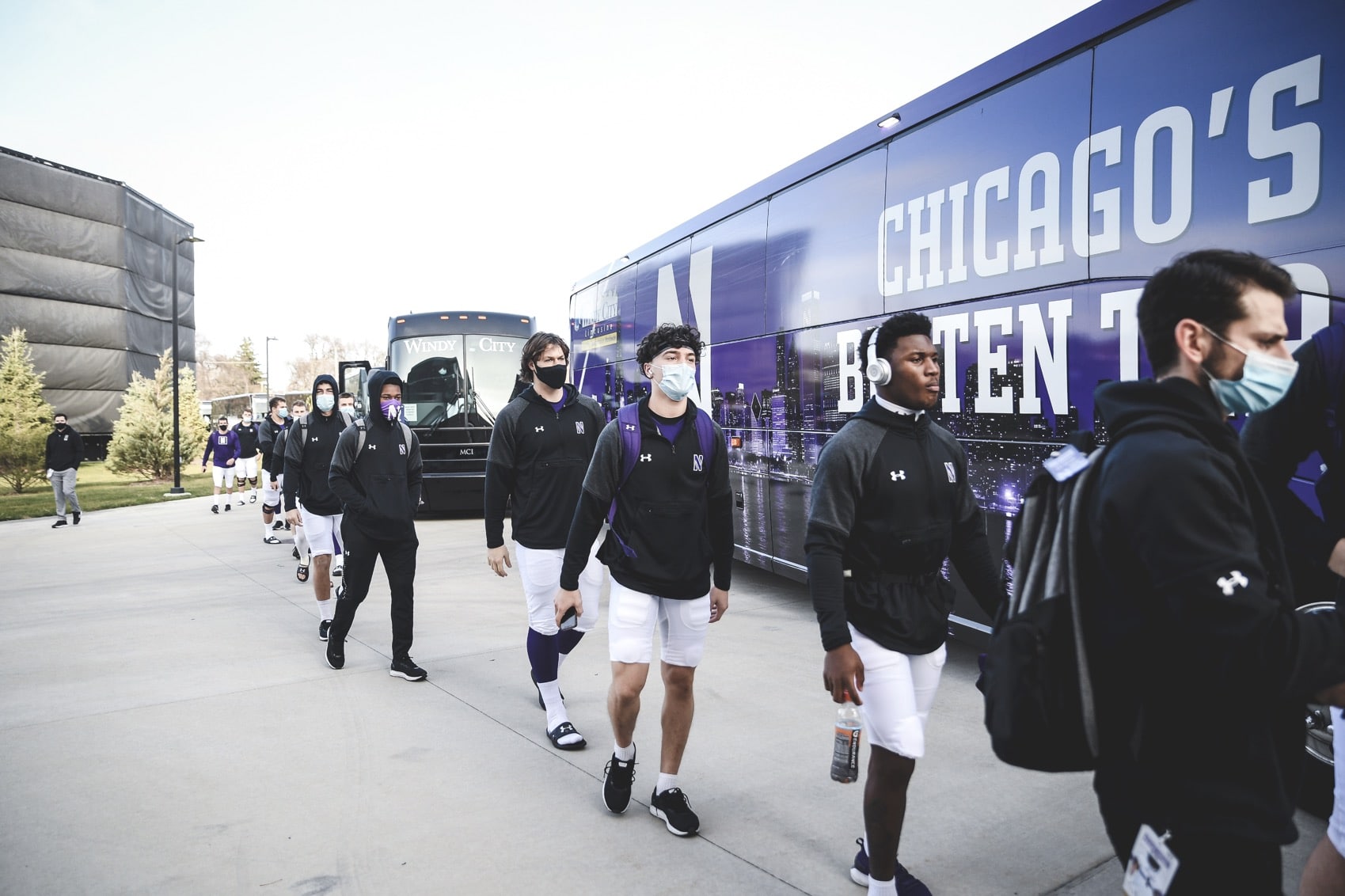
Another former Trevian, Max Rosenthal and his Michigan State teammates realized they needed to make that same commitment if they wanted to make the season work.
The linebacker-turned-fullback limited his social appearances and wore a mask wherever he went.
The Big Ten announced in mid-September its plan to start the season at the end of October, listing a variety of safety measures that needed to take place in order for the games to happen.
The ball was in the players and coaches’ court now. If there were to be a season, they would control its destiny.
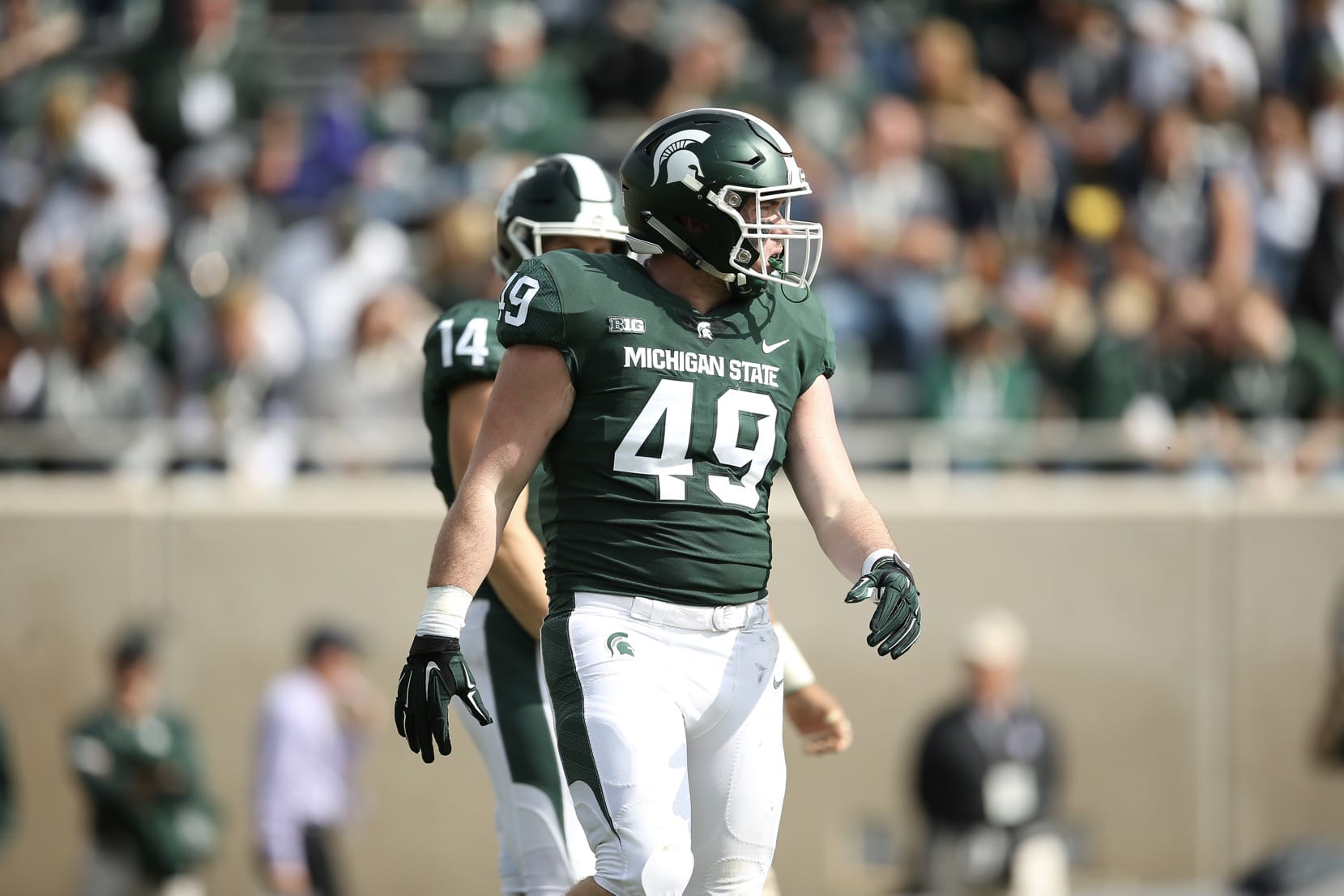
“It was a pretty big sacrifice for all of us,” Rosenthal said. “We were pretty strict, very in it together that of course the season is a priority. They did a lot to make the season happen, so we wanted to follow every protocol that we could.”
The new normal
It didn’t take long for Jake Marwede to get used to his new football life.
The former Loyola Academy star and current Duke University tight end quickly learned what it would take to pull off a season during a pandemic.
While Big Ten athletes and coaches juggled whether to have a season, the Atlantic Coastal Conference was one of three conferences to start its season as planned.
One of the first adjustments was the testing. Duke athletes were tested for COVID-19 daily after practice even though the ACC only required two or three times a week.
The weekly football schedule remained mostly the same compared with other seasons, but with social distancing and mask-wearing, the social piece of the game was vastly different.
Duke split up its team into two locker rooms, with half the team staying in the home locker room and the other half dressing in the visiting locker room. Players had to wear a gaiter-style masks during practice when they were not playing.
Group meetings took place in large rooms, and weight-lifting happened in multiple weight rooms.
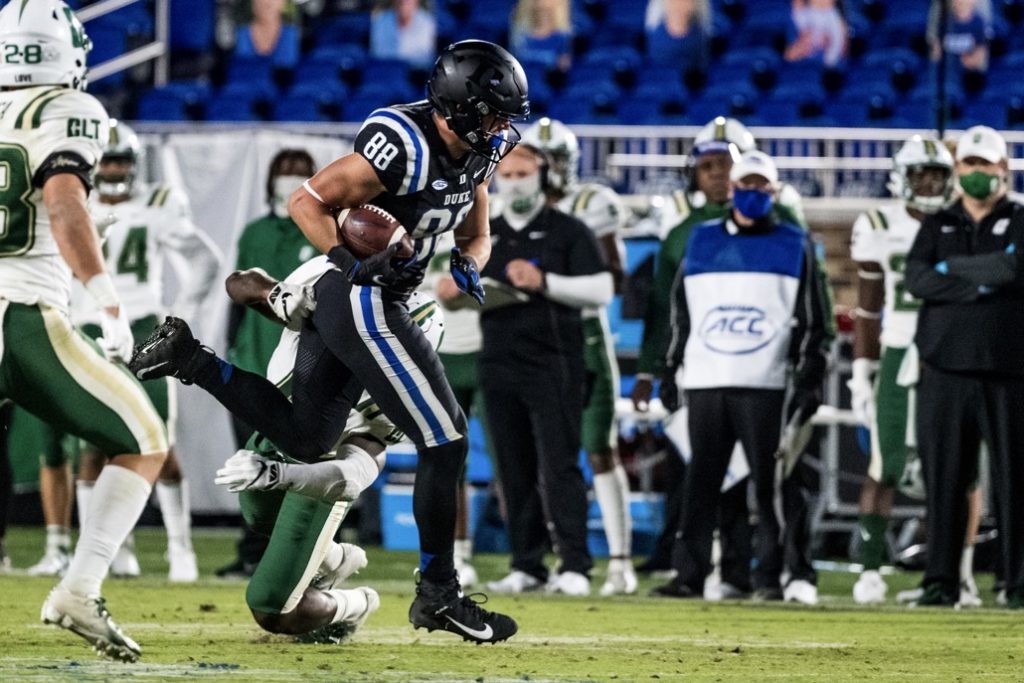
Gamedays took some time to get used to. Duke did not allow fans at its games like the Big Ten, so during most contests, Marwede played in front of empty stands or seats filled with cardboard cutouts of fans.
No tailgating. No roar of the crowd. No meet and greets pre- and post-game.
Players admitted throughout the season the strangeness of it all. But, come gametime, Marwede barely noticed the vacant bleachers.
“When I’m in, I’ll just tune everything out and see what’s going on the field,” Marwede said. “The only time I notice the empty stadium is running on and off the field.”
There were some silver linings, however.
To keep players safe, isolation was important, so players got their own hotel rooms. Northwestern even gave players their own space on buses while traveling.
It’s one thing Olges wished could remain next season.
“Honestly the traveling part was one of the upsides and people are not looking forward to going back to normal next year,” he said.
Battling the curve
Making new friends is always a challenge, especially during a pandemic.
Former Trevian Terry Zapf had to start anew this season after transferring from Williams College to the University of Illinois to. Whether it was learning a new scheme or just making friends, Zapf had to learn everything on the fly — some of it virtually.
“Being around the team made it easier,” Zapf said. “I already knew a good amount of people who were here, but it was definitely a different year meeting people.”
Rosenthal, a redshirt junior, and his Michigan State teammates had to meet a whole new staff virtually. Former head coach Mark Dantonio suddenly resigned on Feb. 4, 2020, and Mel Tucker replaced him a week later.
The Spartans held meetings virtually in the spring, when nearly everything was shut down as the world learned more about COVID-19. Rosenthal spent hours on Zoom for either team or individual meetings, meeting many coaches for the first time on a digital screen.
“It was a lot for us, but I think our team handled it well, both mentally and physically,” Rosenthal said. “A lot was asked from us and the staff to make the season happen, so I think everyone did their job and I’m glad we could play the season.”
Players had to also battle with the mental aspect of the season. Was it worth it to go through the stress and struggle to prepare for games that were far from a guarantee?
Being around the team made it easier. I already knew a good amount of people who were here, but it was definitely a different year meeting people.”
Terry Zapf, New Trier High School alumnus, on adjusting to a new team during a pandemic.
Michigan State had two games canceled, Illinois and Northwestern each had one, and Duke added the University of Miami to its schedule because of complications that came up during the year.
“It was definitely different going into a week thinking you’re going to play a team and then you’re playing a team you weren’t supposed to play the entire year,” Marwede said. “They throw those curveballs in for you but you have to adapt. It’s definitely different, because you never truly know whether you’re going to play your opponent that week.”
Most players did the adjusting without the comfort of family. Athletes could not see family members during the season, not even after games because of the threat of transmitting the virus.
These are some of the things — the unknown, the testing, the isolation — players will remember years down the road.
They’ll remember those moments of what was a season unlike any other.
“The social aspect was the hardest,” Marwede said. “Not being able to hang out with my teammates as much as I would’ve like to, whether that’s not being able to lift as the whole offense in the weight room because you’re split up downstairs and upstairs, whether that’s not being able to talk in the locker room because you’re split up in different rooms, to even going to have a roommate in the hotel room. There’s not many opportunities to go talk to your teammates.”
Locked in and ready to win
Olges and his teammates stayed committed to their goal once their season started.
The Wildcats practiced social distancing, wore masks and brought the energy needed to play in front of an empty stadium. They worked through the challenges and toward their goal of a Big Ten title.
Not that it was easy.
“It was tough being on the same repetitive schedule every day,” Olges said. “A lot of guys got frustrated and tired of that. Obviously we all knew that’s how it needed to be. We all needed to lock in and get it going.”
The Wildcats finished one of the best seasons in program history, with a 6-1 regular season, runnerup to the Big Ten Championship and a Citrus Bowl victory.
But the biggest win might be that Northwestern football recorded only one positive COVID-19 test since daily testing started in September.
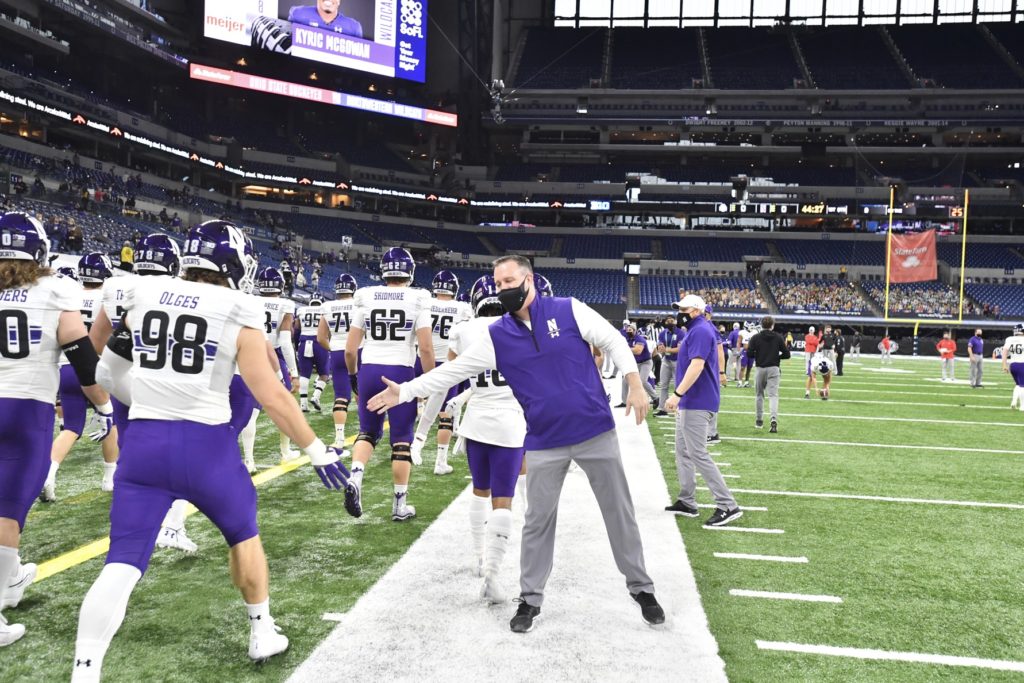
“I can’t believe how special this team was” Olges said. “Just how bonded our guys were this year and how relentless everybody was, safe with protocols, grinding through practice and taking whatever was thrown at us this year and adapting to it as best as possible, taking it and running with it.”
Olges’ preseason weird feeling was spot on.
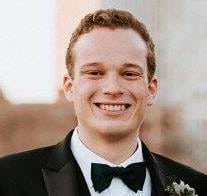
Michal Dwojak
Michal is an award-winning sports journalist based in Chicago. He most recently served as the sports editor of The Glenview Lantern and Northbrook Tower and is a graduate of the College of Media at the University of Illinois, Urbana-Champaign. He also contributes to The Varsity podcast.

